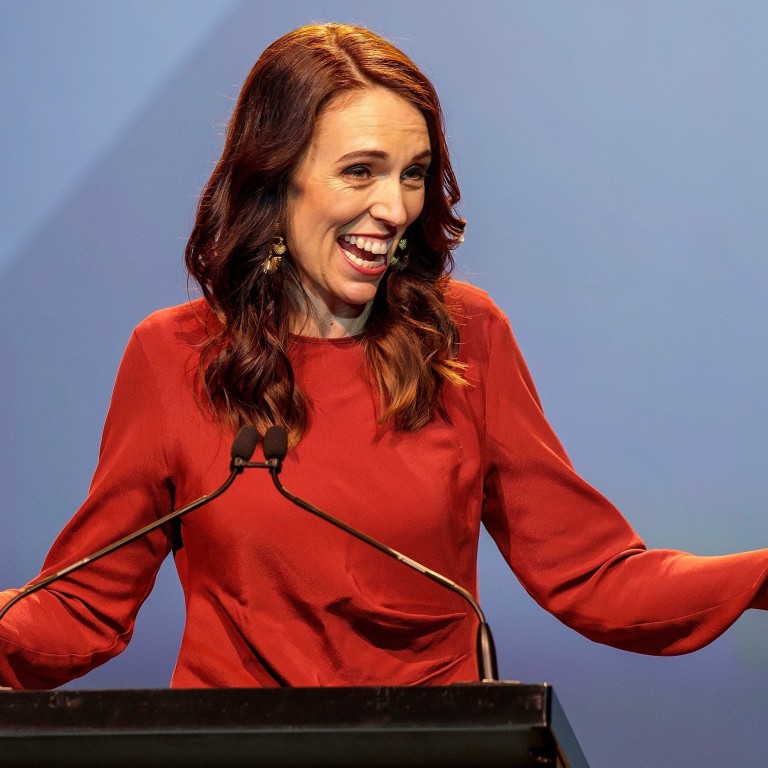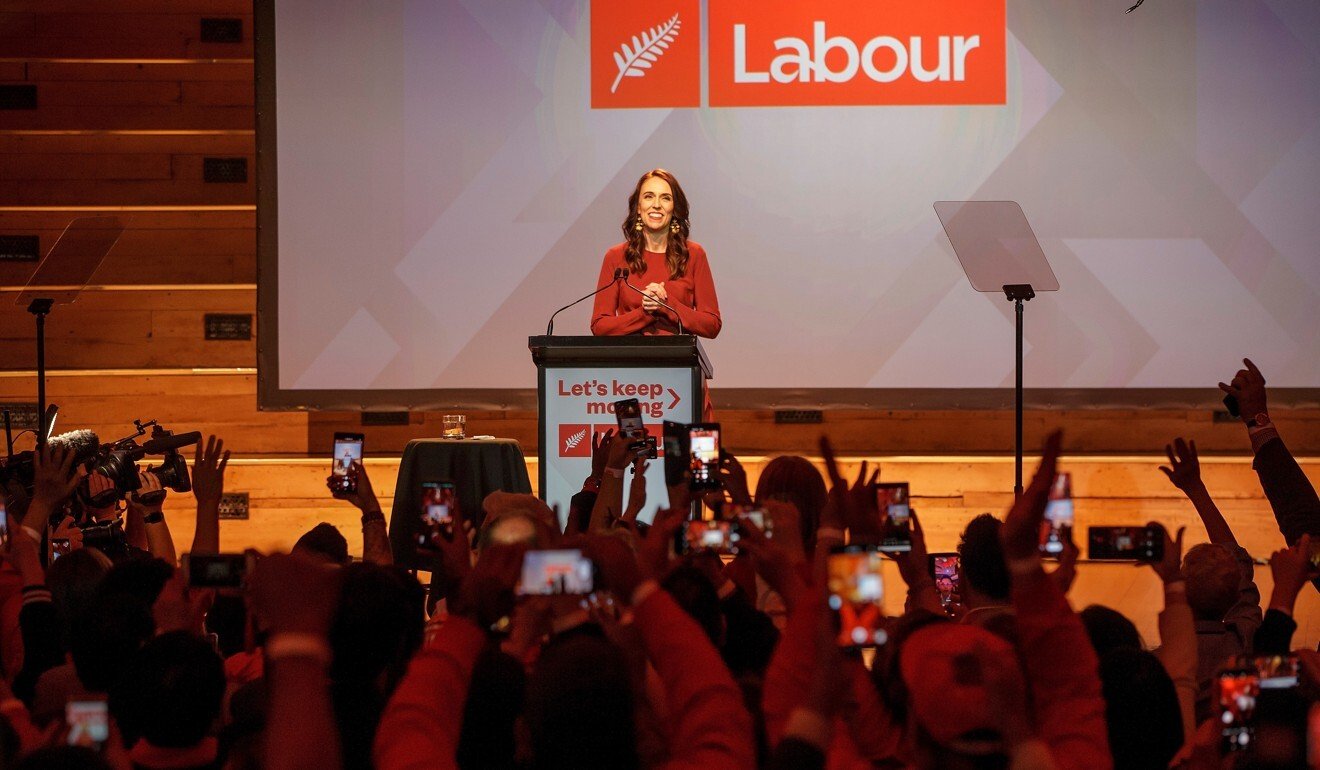
Jacinda Ardern’s Labour Party sweeps New Zealand election
- The mandate means Ardern could form the first single-party government in decades
- Opposition National Party leader Judith Collins congratulated the prime minister for an ‘outstanding result’
The mandate means Ardern, 40, could form the first single-party government in decades, and face the challenge of delivering on the progressive transformation she promised but failed to deliver in her first term, where Labour shared power with a nationalist party.
“This is a historic shift,” said political commentator Bryce Edwards of Victoria University in Wellington, describing the vote as one of the biggest swings in New Zealand’s electoral history in 80 years.
Labour was on track to win 64 of the 120 seats in the country’s unicameral parliament, the highest by any party since New Zealand adopted a proportional voting system in 1996.
In a victory speech in front of hundreds of cheering supporters in Auckland, Ardern said her party had gotten more support from New Zealanders that at any time in at least 50 years.
“This has not been an ordinary election, and it’s not an ordinary time,” she said. “It’s been full of uncertainty and anxiety, and we set out to be an antidote to that.”

Ardern promised not to take her new supporters for granted and to govern for all New Zealanders.
“We are living in an increasingly polarised world, a place where, more and more, people have lost the ability to see one another’s point of view,” she said. “I think in this election, New Zealanders have shown that this is not who we are.”
“It is an outstanding result for the Labour Party,” Collins said. “It has been a tough campaign.”
Collins promised that the party would be back to fight another day.

“People were very grateful and very happy with how we’ve handled Covid, they like the shape of the plan that we’ve got going forward from here for the economy,” said Finance Minister Grant Robertson, a top Labour MP.
Geoffrey Miller, analyst at political website Democracy Project, said the victory was “very much a personal triumph for Jacinda Ardern’s ‘superstar’ popularity and brand.”
Of Ardern’s current coalition partners, the nationalist New Zealand First Party had 2.6 per cent and the Green Party 7.6 per cent. If she is unable to form a Labour-only government, she is expected to continue to rely on the minor Greens while jettisoning New Zealand First.
A Labour-Green coalition would be the first fully left-leaning government since the 1970s, a scenario that National’s Collins warned would mean more taxes and an environment hostile to business.
Ardern has pledged to raise taxes on top earners, while Collins promised short-term tax cuts, but they have otherwise shown few major differences on policy.
New Zealand’s mundane election: like Narnia to America’s apocalypse
She burnished that reputation this year with a “go hard, go early” approach to the new coronavirus, which has eliminated locally spread Covid-19 in the nation.
The election was delayed by a month after new virus infections in Auckland, that led to a second lockdown in the country’s largest city.
While known internationally for promoting progressive causes such as women’s rights and social justice, at home Ardern faced criticism that her government failed on a promise to be transformational.

Life is back to normal in New Zealand, but its borders are still shut, its tourism sector is bleeding and economists predict a lasting recession after the harsh lockdowns.
The economy shrank at an 12.2 per cent annual clip in the second quarter, its steepest drop since the Great Depression. Debt is forecast to rise to 56 per cent of gross domestic product from less than 20 per cent before the pandemic.
Additional reporting by Associated Press

